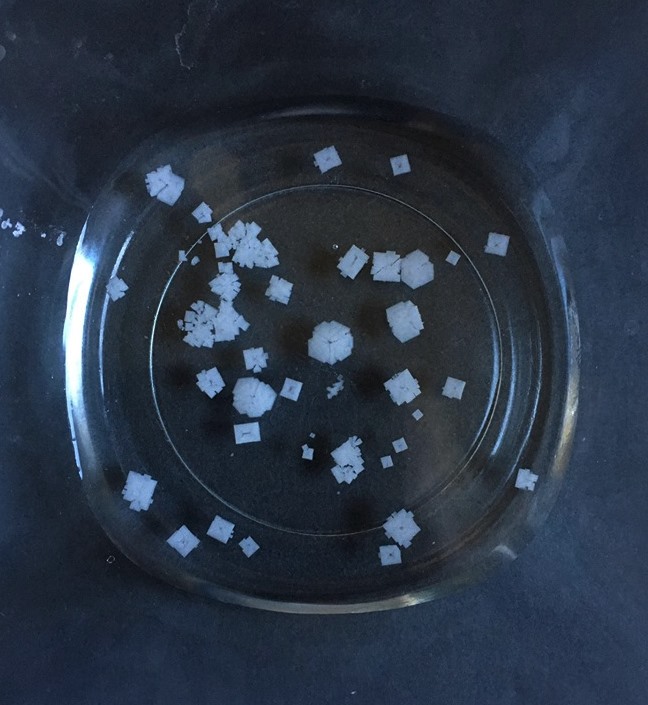Crystallization
Crystallization is the process by which a solid, called a crystal, is formed from a solution or melt state. During crystallization, the particles of a substance organize themselves into ordered, regular patterns that form a crystalline structure. This process occurs at certain temperatures and pressures when the solute is saturated and can no longer hold all the dissolved particles, leading to their settling and crystal formation.
Crystallization is a very common phenomenon in nature and in laboratory conditions and plays an important role in various industries, including chemistry, geology, pharmaceuticals, food and manufacturing.
Examples of crystallization:
Water: When water freezes below freezing, ice crystals form.
Salting food: Salting food, such as pickles, uses a salt solution. During the process, the water in the cucumbers evaporates and the salt becomes saturated, which leads to the formation of salt crystals on the surface of the cucumber.
Pharmaceutical industry: The production of pharmaceutical substances often involves crystallization to achieve the desired pure product.
Stone and Gemstone Manufacturing: Gemstones such as diamonds, rubies and sapphires are natural crystals.
Salt production: During salt mining, salt water is pumped into salt flats, where the salt is left in the sun and wind, which leads to the formation of salt crystals.
Crystallization is of fundamental importance in understanding the structure and properties of substances and is important for many applications in everyday life and in industry.

